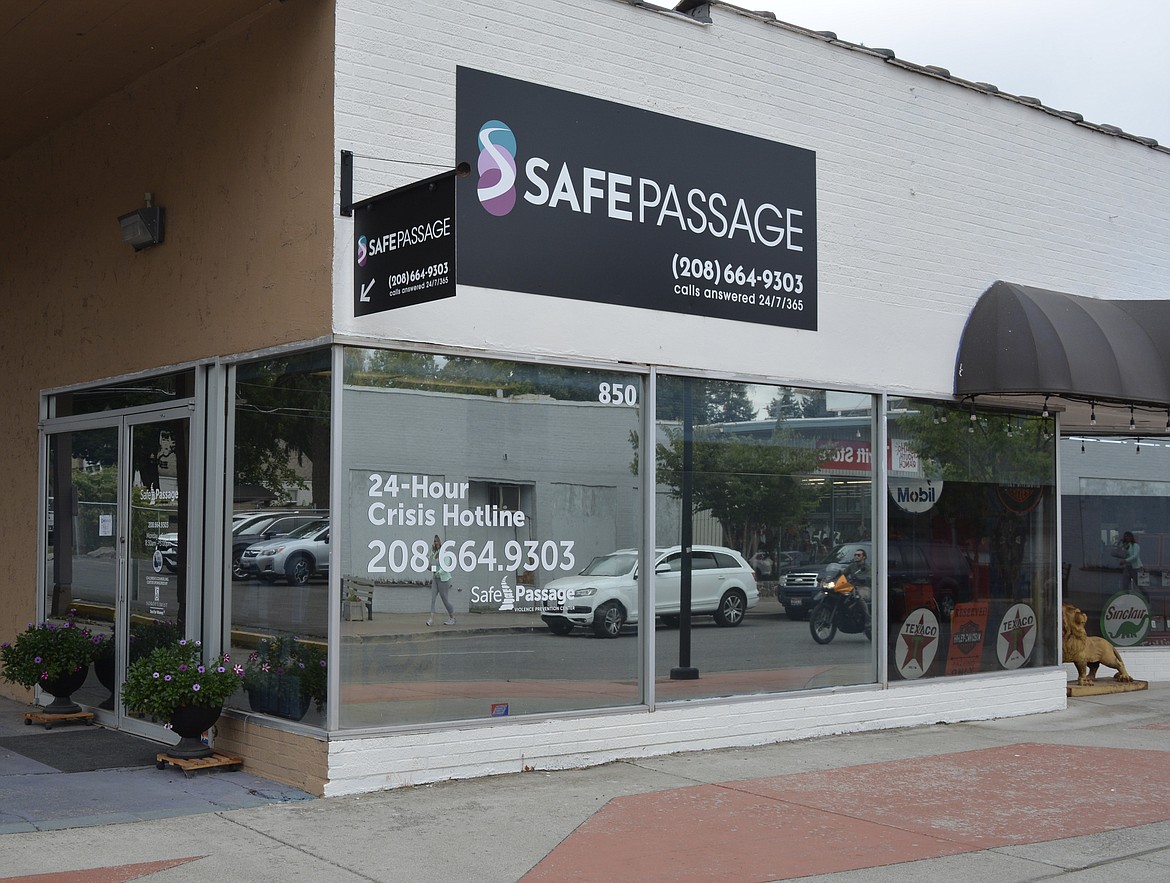Behind closed doors
“What do I do? And where the heck do I go?”
Amanda Krier said these thoughts are often flashing in the minds of survivors she works with after they experience domestic violence or the escalation of stressful situations that often lead up to violent events.
Krier, the new executive director at Safe Passage, said the agency provides a critical resource for individuals to find a path forward with safety, empowerment and education.
“Reducing violence in our community is key for us. If we weren’t here, who would be?” Krier said.
A tale of two narratives
When there is an escalation of abuse in a relationship that culminates in violence, controlling behavior often begins with small manipulations such as restricting who someone hangs out with or restricting financial means, Krier said. People can seek to control others in their lives by coercing them into isolation, financial abuse or psychological abuse before the appearance of more serious violence.
“How do we solve this? I would love to work myself out of a job one day,” Krier said. “I think a lot of times people don’t know how much violence happens in our community. When we see these statistics and they see these things happening, it’s a big shock for people.”
Agencies that advocate for survivors of domestic abuse and domestic violence like Safe Passage or Shoshone County Crisis and Resource Center are there to connect individuals facing often very traumatic situations to critical resources and help them find a path forward.
Krier said the simplest way to support victims is to just believe people when they tell you they have experienced abuse. Even if the individual in question has never appeared to you to be capable of cruelty, understand there are often two narratives at play: the community-facing version where everything in a relationship is fine and the true version where the reality behind closed doors is vastly different.
“Things look different from the outside than from the inside. It’s not a phenomenon, which is terrible. People say of the abusive partner: ‘They’re a good person, they would never do this.' We hear that a lot as well, but a lot of times we don’t see what’s happening inside the home, when they’re alone, that power of control is what that all comes down to, the control over another person,” Krier said.
One way to educate people, especially those on the younger side who may not know what boundaries are most important to set in relationships, is to discuss green flags (when a person is considerate of boundaries) versus red flags (minimizing, denying and blaming, or coercive and controlling behavior).
Domestic abuse agencies assist more people than are reported in crime statistics, often because the realities of confronting the abuser and having traumatic events picked over and judged by the public would make survivors feel revictimized.
Krier said that from time to time, her agency connects with law enforcement to share the numbers of individuals the nonprofit actually sees who are experiencing certain crimes, but all too often, community members aren’t readily seeing those numbers. In a year, Safe Passage sees 1,300 to 1,500 people a year who are victims of physical or sexual violence.
“This is our reality,” Krier said.
Helping victims heal
When a friend or loved one approaches you with a story about a traumatic experience or unhealthy relationship, it is best to stay calm and give them the space to explore their own needs.
Ask them, “What do you want me to help you with, and how can I help you?”
“They need a support person. They’re the ones who are going to decide what they want to do and what’s the safest for them. It can get confusing and tiring, but the No. 1 thing you can be doing for someone in an unhealthy relationship is to keep that line of communication open,” Krier said.
October is domestic violence month, and experts say one of the most important things we can do is keep conversations about mental health, boundaries and safety in relationships going year round. They encourage watching for signs of people exacting control over others in small ways by minimizing, denying, and blaming, using children, financial abuse, threats, coercion, isolation or intimidation.
For information about Safe Passage and its programs, visit safepassageid.org or email safety@safepassageid.org, call 208-664-9303 or text 208-449-7228.

